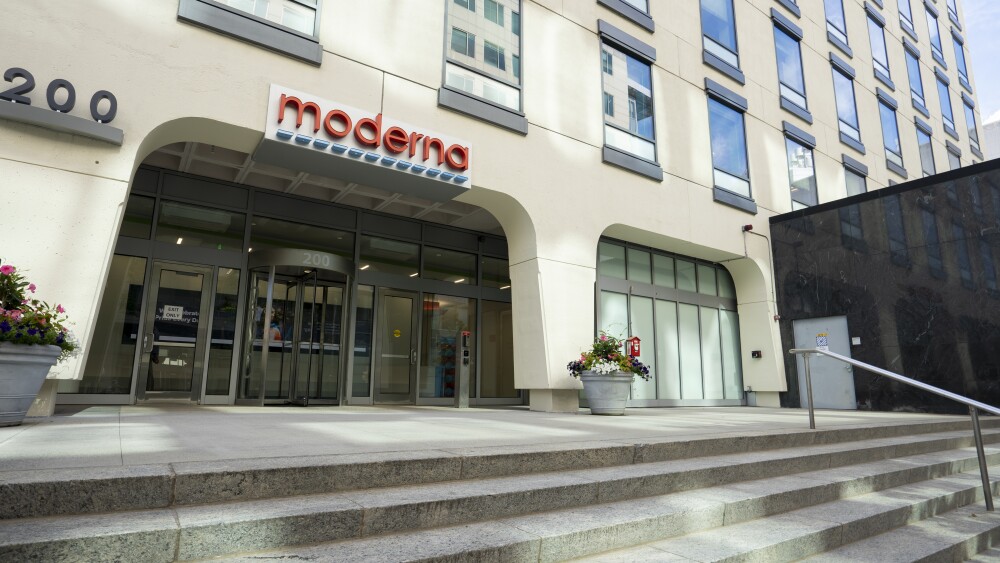A Delaware judge on Wednesday agreed with Roivant subsidiary Arbutus and Genevant’s interpretation of specific patent claims regarding the lipid nanoparticle delivery system used by Moderna’s COVID-19 vaccine.
A Delaware District Court on Wednesday sided with Roivant subsidiary Arbutus Biopharma and Genevant Sciences in their ongoing patent infringement case against Moderna regarding the lipid nanoparticle delivery system used in the latter’s COVID-19 vaccine.
The patents were licensed to Genevant, a joint venture between Arbutus and Roivant. Judge Mitchell Goldberg in a 37-page opinion agreed with Arbutus and Genevant’s interpretation of two out of the three disputed claims in the case.
One claim concerned the total percentage of lipids present in the delivery particle. Moderna argued that the particle should refer to the “finished lipid particle,” which does not require further processing. The pharma also insisted that the lipid percentages must be “understood as the exact ranges recited in the claim,” unless the language of the patent explicitly implies some uncertainty.
Arbutus and Genevant made the case for the “plain and ordinary meaning” of the word particle and that the lipid percentages “encompass their standard variation based on the number of significant figures recited in the claim.”
Goldberg agreed with Arbutus and Genevant on both points, writing that the language of the patent claim does not require the lipid particle to be a finished particle that is “completely free from further processing.”
On the question of the precision of lipid percentages, Goldberg noted that “Moderna has not established that Plaintiffs’ removal of the word ‘about’ constituted a clear and unmistakable disclaimer of the rules of rounding,” adding that a person with an ordinary skill in the art would “understand that the rules of rounding and significant figures apply to the claimed ranges.”
Goldberg also ruled in favor of Arbutus and Genevant regarding the second claim, agreeing that the claim of a “cationic lipid having a protonatable tertiary amine” should be interpreted using its plain and ordinary meaning, instead of Moderna’s proposal to include other qualifiers.
Arbutus and Genevant first filed their patent infringement lawsuit against Moderna in February 2022, alleging that the vaccine developer had used their lipid nanoparticle technology without license or proper compensation.
The plaintiffs “seek fair compensation for Moderna’s use of our patented technology … without which Moderna’s COVID-19 vaccine would not have been successful,” Arbutus CEO William Collier said at the time.
The trial for the case is set to begin in April next year, according to Reuters.
Tristan Manalac is an independent science writer based in Metro Manila, Philippines. Reach out to him on LinkedIn or email him at tristan@tristanmanalac.com or tristan.manalac@biospace.com.






